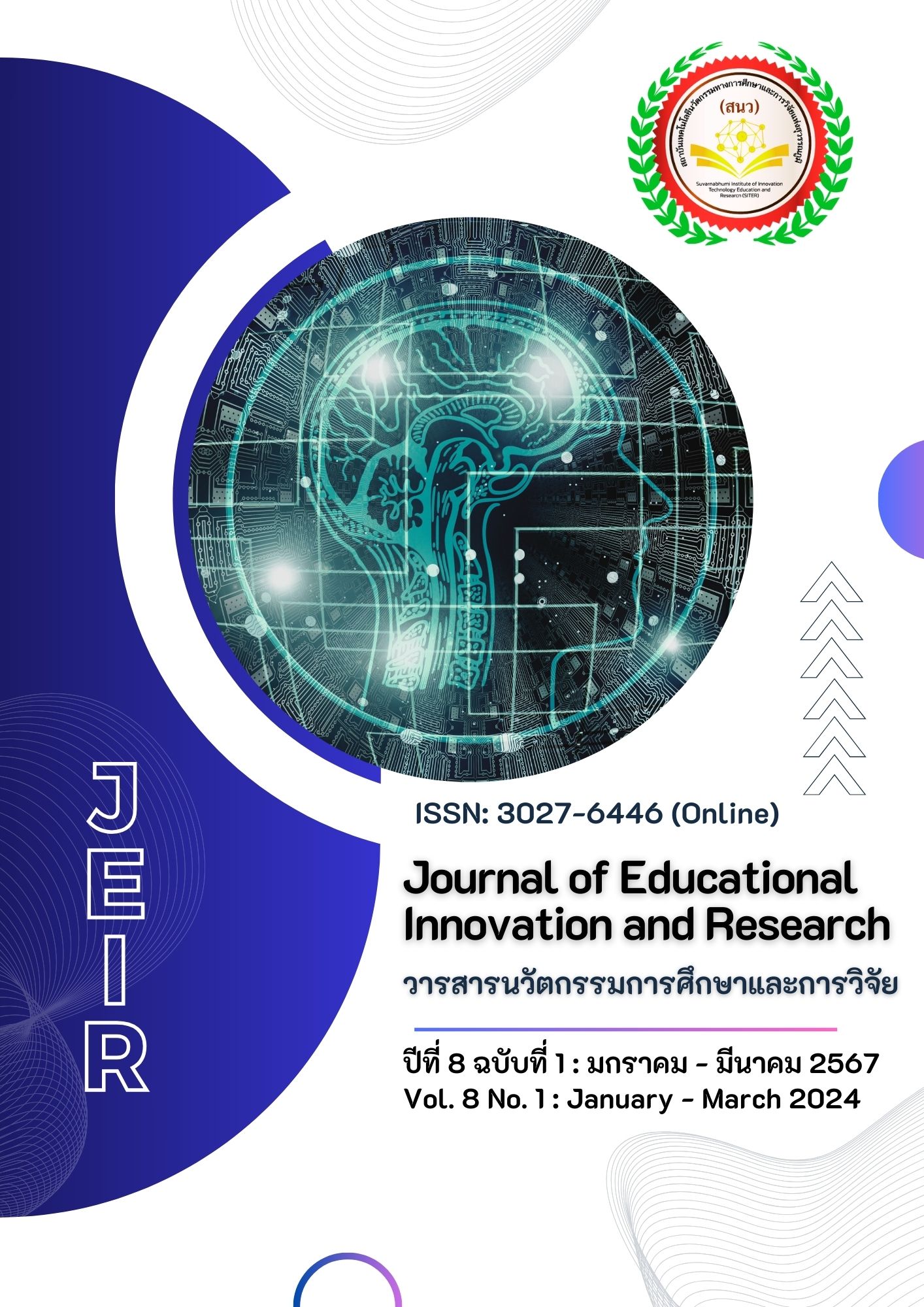The Effect of Inclusive Leadership on Subordinate Behaviors Via The Mediating Roles of Relational Identity and Trust in Chengdu, China
Main Article Content
บทคัดย่อ
This Article aimed to (1) study the effect between inclusive leadership, relational identity, trust, and subordinate behaviors, (2) analyst the inclusive leadership, relational identity, trust effect subordinate behaviors, (3) testify the trust and relational identity play a mediating role between inclusive leadership and subordinate behaviors. This research was quantitative research, collected data from executives of the companies in Chengdu, China sample of 409 respondents via simple random sampling, Analysis of data via SEM by AMOS. The research result was found as follow: 1). the factors that influence inclusive leadership were leadership effectiveness, leadership openness, and leadership accessibility. Factors that influence relational identity were relational identity individual cognition, individual understanding, and individual concentrate. Factors influence Trust were trust cognitive, behavioral, and trust affective.2) the impact of Inclusive leadership, relational identity, and trust of the companies was insignificant. Still, the impact of pay on subordinate behaviors has been found insignificant. 3) The mediating relational identity, and trust impact of subordinate behaviors factors play impact between the independent variables inclusive leadership to pay on subordinate behaviors the dependent variable.
Article Details

อนุญาตภายใต้เงื่อนไข Creative Commons Attribution-NonCommercial-NoDerivatives 4.0 International License.
เอกสารอ้างอิง
Ashforth, B. E., Harrison, S. H., & Corley, K. G. (2008). Identification in organizations: An examination of four fundamental questions. Journal of management, 34(3), 325-374.
Carmeli, A., Reiter-Palmon, R., & Ziv, E. (2010). Inclusive leadership and employee involvement in creative tasks in the workplace: The mediating role of psychological safety. Creativity Research Journal, 22(3), 250-260.
Carsten, M. K., & Uhl-Bien, M. (2013). Ethical following: An examination of following beliefs and crimes of obedience. Journal of Leadership & Organizational Studies, 20(1), 49-61.
Chen, Y. (2015). The Impact of Transformational Leadership on Organizational Trust and Commitment [Master's thesis, Harbin Institute of Technology].
DeRue, D.S., Ashford, S.J. (2010). Who will lead and who will follow? a social process of leadership identity construction in organizations. Academy of Management Review, 35(4),627-647.
Detert, J. R., & Edmondson, A. C. (2011). Implicit voice theories: Taken-for-granted rules of self-censorship at work. Academy of management journal, 54(3), 461-488.
Fairhurst, G. T., & Uhl-Bien, M. (2012). Organizational discourse analysis (ODA): Examining leadership as a relational process. The Leadership Quarterly, 23(6), 1043-1062.
Hollander, E. (2012). Inclusive leadership: The essential leader-follower relationship. Routledge.
Mozumder, N. A. (2018). A multilevel trust-based model of ethical public leadership. Journal of Business Ethics, 153, 167-184.
Qu, R., Janssen, O., & Shi, K. (2015). Transformational leadership and follower creativity: The mediating role of follower relational identification and the moderating role of leader creativity expectations. The leadership quarterly, 26(2), 286-299.
Shore, L. M., Randel, A. E., Chung, B. G., Dean, M. A., Holcombe Ehrhart, K., & Singh, G. (2011). Inclusion and diversity in work groups: A review and model for future research. Journal of management, 37(4), 1262-1289.
Sluss, D. M., & Ashforth, B. E. (2007). Relational identity and identification: Defining ourselves through work relationships. Academy of management review, 32(1), 9-32.
Song, L.L., Liu, Y.R. (2014). The Influence of Leaders' Empowering Behaviors on Employees' Voice: The Role of Organizational Trust and General Self-efficacy. Scientific Decision Making, (5), 17-32.
Tian,Y.N .(2019).A Study on the Stimulation Mechanism of Inclusive Leadership on Employees' Constructive Deviance (Master's thesis, Shanxi University).
Uhl-Bien, M., Riggio, R. E., Lowe, K. B., & Carsten, M. K. (2014). Followership theory: A review and research agenda. The leadership quarterly, 25(1), 83-104.
Vanhala, M., & Dietz, G. (2019). How trust in one’s employer moderates the relationship between HRM and engagement related performance. International Studies of Management & Organization, 49(1), 23-42.
Wang L, Wang W, Guo HY, Xie H. (2014). A study on the relationship among nursing organization justice, trust and nurses' intention to stay in post. Chinese Journal of Nursing, 49 (5), 518-521.
Xiao, X.H., Zhang, Y.J., Cheng, Z.H. (2017).Research on the Impact of Inclusive Leadership on Service Innovation of Frontline Employees. Managing the World, (4), 182-183.
Yan, A.M., Lin, L.(2019).Surveillance or direct questioning?The Effect of High-Commitment Work System on Feedback-Seeking Behavior. Human Resources Development in China, 36(6), 79-87.
Zhang, S., Chen, G., Chen, X. P., Liu, D., & Johnson, M. D. (2014). Relational versus collective identification within workgroups: Conceptualization, measurement development, and homological network building. Journal of Management, 40(6), 1700-1731.
Zhao, H.J. (2013). An Exploratory Study of Follower Behavior. Economic and Management Research, (4), 106-110.
Zhou, W.J., Song, J.W, Li, H.L.(2015).The Connotation, Structure and Measurement of Follower in Chinese Context. Journal of Management, 12 (03), 355.
Zhu, Y., Qian, S.T. (2014).Analysis of the Research Frontier of Inclusive Leadership and Its Future Prospect. Foreign Economics and Management, 36 (2), 55-64.


